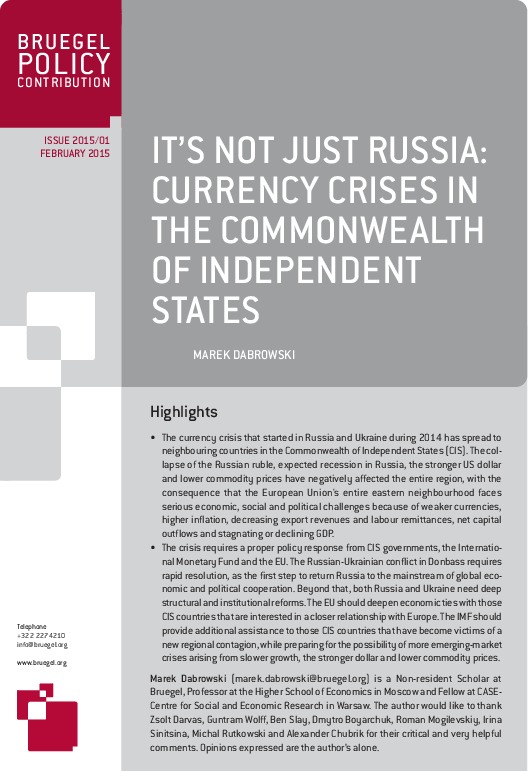Policy Contribution
It’s not just Russia: Currency crisis in the Commonwealth of independent states
This Policy Contribution analyses the dynamics of currency crises in Russia and Ukraine and their regional contagion, with attention to changes in nominal exchange rates, international reserves and official reactions to the development of crisis.
Highlights
• The currency crisis that started in Russia and Ukraine during 2014 has spread to neighbouring countries in the Commonwealth of Independent States (CIS). The collapse of the Russian ruble, expected recession in Russia, the stronger US dollar and lower commodity prices have negatively affected the entire region, with the consequence that the European Union’s entire eastern neighbourhood faces serious economic, social and political challenges because of weaker currencies, higher inflation, decreasing export revenues and labour remittances, net capital outflows and stagnating or declining GDP.
• The crisis requires a proper policy response from CIS governments, the International Monetary Fund and the EU. The Russian-Ukrainian conflict in Donbass requires rapid resolution, as the first step to return Russia to the mainstream of global economic and political cooperation. Beyond that, both Russia and Ukraine need deep structural and institutional reforms. The EU should deepen economic ties with those CIS countries that are interested in a closer relationship with Europe. The IMF should provide additional assistance to those CIS countries that have become victims of a new regional contagion, while preparing for the possibility of more emerging-market crises arising from slower growth, the stronger dollar and lower commodity prices.












